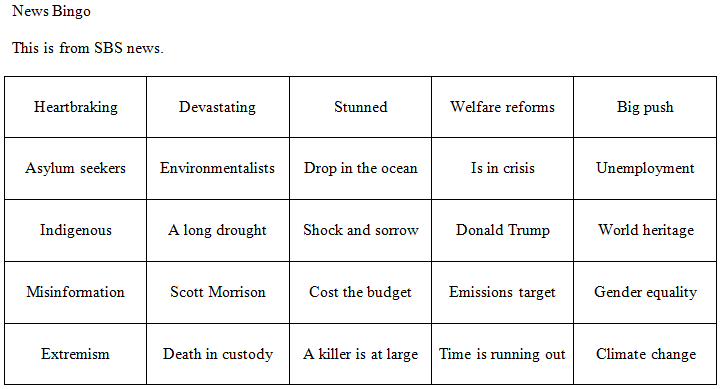mollwollfumble said:
roughbarked said:
What are the boundaries?
Whoa. Wish i’d asked that question.
I’ve got a couple of related comments, none really get to the heart of the question, though.
1) i watched the old movie “my girl friday” with cary grant. That’s no holds barred journslism. Cheat, lie, put yourself in harms way, be rude, hide a felon from the police, sort of journalism. Worth a watch if you want to see what american journalism used to be like.
2) Bugging. How do you expose a well-connected criminal (such as a politician) without going beyond the law? I’m not sure you can.
3) embedded reporters. Famous from the Gulf War. Only report one side of the story in a war, in return for physical safety in the form of military protection.
4) what i call non-reporters, who report stories such as “politician opens mouth”, “person unhappy with government”, “sports star makes a mistake” as if they were real news, hyping the headline to attract readers.
5) snopes, fact checking for reporters, to exclude urban myths.
6) anger, slanting a story with the deliberate aim of provoking anger in readers. For example by finding the most bigotted, biased person you can and emblazening their view on the front page.
7) plagiarism. Don’t bother doing anything except cut and paste from other reporters. Maximum output for minimum effort.
8) pre-prepared scripts. For a single news item split it up into a standard sequence. (Hard to describe this one here). Eg finishing up with a front page news item about how the person involved has requested that no more news be published about them.
9) create a disaster in order to have something to report.
10) one aspect of journalism that i rather like, but see so rarely is translation of news out of other languages. Deutsche welle used to be really good at this.
11) news company’s definition of what is and isn’t news. It’s so skewed.
Etc.
That doesn’t even begin the scratch the surface of the boundaries of journalism, but it starts to give some idea of where we should be looking for boundaries.
1) Journalism is still like that.
2) that’s not journalism’s job. Journalists have tried and been jailed. There are laws in most jurisdictions about entrapment and recording without the person’s knowledge. Police do still use it though.
3) Er, ok.
4) news these days is 24/7. Most evening news bulletins are an hour long. You gotta fill in time and websites with stuff. News ain’t what it used to be.
5) There’s a difference between journalism and reporting. Actual journalists will dig deep to find truth. Reporters will talk about shit until the cows come home in order to file something, anything.
6) There’s a whole other commentary about media bias eg the influence of Murdoch and News Corp on Australian politics. Actual journalism will have two opposing experts quoted in an article.
7) The Daily Mail is infamous for plagiarism. It’s unfair to the journalists who did the work.
8) Part of what news is, is what’s of interest to the public. Just because someone asks for privacy doesn’t mean they’re going to get it. And if the media don’t get something, they’ll ambush, exaggerate, pester or outright lie in order to sell copies. Tabloids are very good at this.
9) Examples?
10) The news we tend to see here in Australia is somewhat sanitised and censored. Is overseas news of interest to Australians? Maybe. Al Jazeera news networks are quite good at this.
11) Again, newspapers, news sites and tv news need content. Have a look at the fluff pieces that appear on news sites over the weekend when the real journalists are taking time off. This is good if one wants to be a freelance journo, because you can pretty much get any shit published on a weekend. The other part of this is lost of media outlets owned by one person. Take a look at Murdoch’s “news” vs other sources.
The beauty of online is that pretty much anything can be news. It depends what one is interested in. If you’re interested in the latest celebrity baby names, you can find it. If you’re interested in the conflict in Syria, you can find that out too.
There are plenty of legal boundaries in journalism. Privacy, copyright, court reporting, defamation etc are all major issues. Journalists who believe in actual news have broken laws and been jailed for it. (Not just journos, anyone can be found guilty of such things. It’s just easier to catch you if you’re in the media. If I named and shamed pedophiles on this forum, there’s probably not much chance I’ll be caught. Derryn Hinch has a larger audience; he’s been charged with contempt over breaching suppression orders etc.
Ultimately, journalism isn’t a dying art. As consumers, we have a smorgasbord of news. There’s stuff we need to know, stuff we should know, stuff we want to know and stuff we just read to procrastinate or because it had a click bait headline. The communications landscape is changing whether you like it or not. News is no longer limited to a 5 minute reel before a popular film in a cinema, and everyone is vying to be heard.
